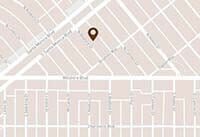
So you’ve just had gastric bypass surgery. Congratulations, you are now on your way to a leaner and healthier you!
But just like any other medical procedure, our bodies need to take in nutrients to help us fully recover after surgery, especially those coming from the major food groups. And with gastric bypass surgery directly affecting your digestive system, you would need an eating plan before and after your surgery. This is to support and sustain your weight loss goal and to help your body adjust to the changes in your stomach and intestines after surgery.
At the same time, you can’t just go back to eating how you used to prior to the surgery. In this article, we’ll take a look at the changes you’ll have to make in your eating – and the eight foods you should steer clear from after gastric bypass.
What Is Gastric Bypass Surgery?
Gastric bypass surgery is a weight loss procedure that reduces the size of the stomach, creating a small pouch and re-routing the intestine to attach to the stomach pouch. After surgery, the food that you take in goes to the small stomach pouch and through the attached small intestine, bypassing the larger part of your stomach and a portion of your small intestine.
Sticking to your gastric bypass surgery diet plan will help you lose weight and to keep that weight off permanently.
Why Do You Need To Watch What You Eat Before And After Gastric Bypass Surgery?
Since gastric bypass surgery directly affects your stomach and intestines, it is advisable for you to have a diet plan before surgery and also after. You may talk to your doctor and dietitian about your diet plan and the changes that have to be made in how eat and your food intake.
The pre-surgery diet plan helps your body to lose weight and fat in and around your liver and abdomen. Losing weight prior to surgery can spell the difference between having a less invasive procedure through laparoscopy or an open surgery altogether.
On the other hand, your post-surgery diet needs to take into consideration that your stomach and intestines have been changed by the procedure. Your digestive system now absorbs fewer vitamins and minerals from the food that you consume.
As already mentioned, it is important to remember that just because you had surgery doesn’t mean you go back to your old eating habits. The procedure may have reduced your stomach size, but without modification to your post-surgery diet, the possibility that your stomach will increase in size is ever present. If you’re not careful, you may even go back to your pre-surgery weight.
What Should Your Food Intake Be Like After Your Gastric Bypass Surgery?
So what is the outlook of your food intake immediately after surgery and weeks and months after the procedure? While your doctor or dietitian will help you navigate through the stages of allowed food intake, here’s a rundown of what to expect in terms of your food intake post-gastric bypass surgery.
Immediately after surgery, your diet will consist mostly of liquid beverages for several days. You start off with clear liquids for a few days, gradually followed by other types of fluid such as decaffeinated coffee or tea, thin soup or broth, or skim milk.
Upon their determination and how your digestive system heals after surgery, your doctor or dietitian will then introduce pureed foods in your diet for several weeks. This will be followed by a soft-food diet such as soft-boiled eggs, baked or steamed white fish, or canned fruits such as pears or peaches.
Once your stomach is ready based on your doctor or dietitian’s assessment, you can now enter the last stage of your post-surgery diet around two months after the procedure. Smaller portions of solid food may now be gradually incorporated in your diet.
What Are The Eight Foods You Should Avoid After Gastric Bypass Surgery?
However, there are still some foods you should as much as possible after the procedure, depending on which diet stage you’re in.
Liquid Diet Stage:
- Carbonated and sugar sweetened beverages
While it may be tempting to reach for that can of soda, make it a habit not to since it may cause an upset stomach if taken soon after surgery. Stick to water as much as possible when you feel thirsty. - Any type of alcoholic beverage
You might be tempted to drink a bottle of beer after surgery because you’re happy you’ve had the surgery. However, alcohol consumption may lead to low blood sugar levels. You will risk your health after gastric bypass surgery if you consume alcohol immediately. Celebrate in a non-alcoholic way instead.
Pureed Food Diet Stage:
- Food with spicy seasonings
Taking in pureed food with spicy seasoning may affect the incision in your stomach and intestine and the overall healing process of the procedure. You may also feel more than slight discomfort.
Solid Food Diet Stage:
- Fiber-rich vegetables, popcorn, corn on the cob, and tough meat
These foods are hard to digest, even if taken in smaller portions or quantities. Given that your stomach is much smaller now, it is better to fill it up with food that can be taken in smaller portions and quantities but is nutrient-filled. - Snacks, crunchy food, pretzels, chips packed with empty calories
These types of foods provide very little to no nutritional value at all. Since your stomach is much smaller post-surgery, it would be wise to make healthier food choices that would provide your body with the nutrients it needs, even in small portions. - Granola, seeds and nuts
These are great snacks, but sadly, these foods are also difficult to swallow. Also, while nuts and seeds contain protein, they also contain a lot of fat. - Bread and bread products
The starchy nature of bread and similar products when chewed may form a paste that is difficult to swallow and be digested. You might have to avoid muffins and sandwiches for a while. Besides, just think that the sugar they have is also not good for you. - Chewing gum
Gum is packed with sugar and the juices that you swallow from chewing the gum are calories that have no nutritional value at all. Another food that’s best to avoid.
Get The Help You Need After Gastric Bypass Surgery!
Getting that gastric bypass surgery is but the first step in your weight loss journey. And with the changes in your digestive system after the procedure, you need to make healthier eating choices. It is a must for you to carefully plan your food intake especially after gastric bypass surgery to make sure that you maximize the health benefits of the procedure.
We at Weight Loss Surgery Center of Los Angeles support your journey towards a leaner and healthier you. If you are considering gastric bypass surgery and you feel that you are eligible to have one, we can help you.
Visit us and see for yourself how Dr. Davtyan, a well-recognized, highly respected and most qualified weight loss surgeon, and his team help people achieve and sustain their health and weight goals.
Contact us today to set an appointment.
Posted on behalf of Dr. David G. Davtyan MD, FACS, FICS





